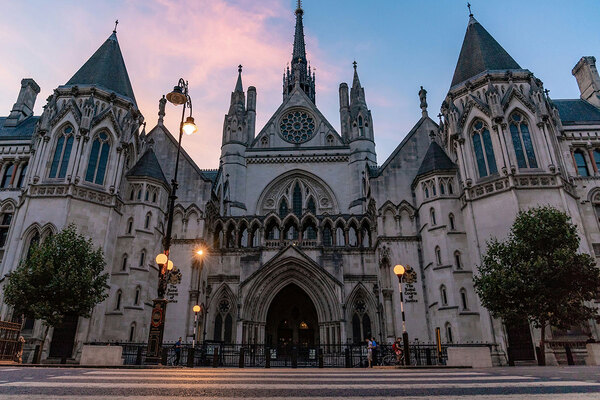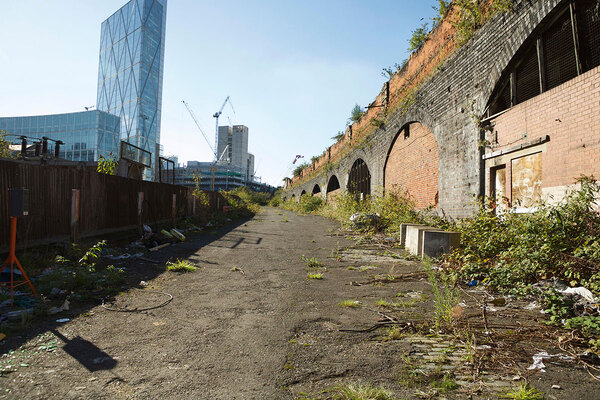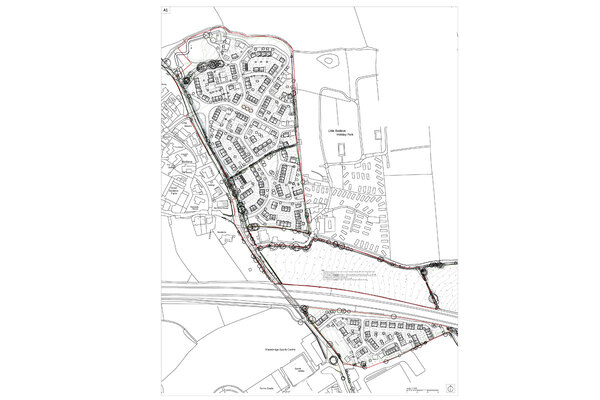You are viewing 1 of your 1 free articles
These should be the eight new priorities for Jenrick and Pincher
Following Boris Johnson’s reshuffle, Jules Birch makes some suggestions for housing policies
The dust has settled on the reshuffle, with yet another new housing minister but more significant developments elsewhere.
The replacement of Esther McVey with Chris Pincher, the 10th housing minister to take their turn since 2010, need only detain us long enough to note the reward reaped by the former for resigning in principle from a proper Cabinet job over Brexit and the fact that the latter has lost the ‘attending Cabinet’ status that previously went with being a minister of state.
As Peter Apps noted on Thursday, the resignation of Sajid Javid is much bigger news because it dials down faint hopes that housing will gain in the Budget and Spending Review.
There was no direct evidence that this would actually happen but as a former housing secretary Mr Javid is at least aware of the issues that need to be addressed. Rishi Sunak, the former Treasury chief secretary who steps into his shoes, is an unknown quantity.
“The resignation of Sajid Javid is much bigger news because it dials down faint hopes that housing will gain in the Budget and Spending Review”
More clues can perhaps be gleaned from the appointment of Jack Airey as Boris Johnson’s special advisor on housing and planning. As a former head of housing at Policy Exchange, we can probably expect more on the ‘building beautiful’ agenda and more support for the argument that housing problems all come back to planning.
And, at least in the short term, the most significant appointment in the reshuffle is the reappointment of Robert Jenrick as housing secretary.
Because of Brexit and the election, he has still faced only one session of parliamentary questions from MPs but if his priorities were not clear enough already he tweeted about them repeatedly at the end of last week:
Delighted to remain at @mhclg - where I will be:
— Robert Jenrick (@RobertJenr
🔹Helping more people onto the ladder
🔹Building safer, greener, more beautiful homes
🔹Ending roughsleeping
🔹Delivering on @Conservatives mission to level-up 👍 t.co/G1JLqbpMlQ0Delighted to remain at @mhclg - where I will be:
— Robert Jenrick (@RobertJenrick) February 13, 2020
\uD83D\uDD39Helping more people onto the ladder
\uD83D\uDD39Building safer, greener, more beautiful homes
\uD83D\uDD39Ending roughsleeping
\uD83D\uDD39Delivering on @Conservatives mission to level-up \uD83D\uDC4D https://t.co/G1JLqbpMlQ
That sparked a flood of responses, with leaseholders from Skyline Central in Manchester quickest off the mark to set him straight:
Fixed it for you @RobertJenrick...
— Skyline Central 1 (@SkylineC
🔹Ignorning the cladding scandal
🔹Refusing to meet with anyone who may ask me a difficult question
🔹Hobnobbing with other millionaire friends and developers
🔹Looking for every photo opp to fool people that I’m actually doing something2020Fixed it for you @RobertJenrick...
— Skyline Central 1 (@SkylineCentral1) February 13, 2020
\uD83D\uDD39Ignorning the cladding scandal
\uD83D\uDD39Refusing to meet with anyone who may ask me a difficult question
\uD83D\uDD39Hobnobbing with other millionaire friends and developers
\uD83D\uDD39Looking for every photo opp to fool people that I’m actually doing something
It was left to the doomed Ms McVey to reply none too convincingly to a Westminster Hall debate on cladding last week, while campaigners say that Mr Jenrick has them.
However, those four priorities and the way he phrased them still provide some interesting indications of the way he thinks about his job.
The reference to “helping people more onto the ladder” suggests yet more wheezes that will help some to buy while continuing to pump up prices for everyone else. Stamp duty cuts here we come?
“Building safer, greener, beautiful homes” lumps together three different issues while ignoring the safety of existing buildings and avoiding specific commitments on the environmental and design standards of new ones.
“Working to end rough sleeping” repeats the manifesto commitment to do so by the end of this parliament but says nothing about how it will be achieved.
“Delivering our mission to level up” is this government’s version of “a country that works for everyone” but again offers few clues about how.
A first council tax revaluation since 1991, ending the absurd situation where people in Worksop pay more than those in Westminster, would be a good start to that mission. Reports over the weekend suggest that it has already been ruled out.
So here are a few brief suggestions from me about what his real priorities should be:
- Fix the cladding crisis
For all the government promises and announcements, things are still getting worse for leaseholders trapped in unsaleable flats as mortgage lenders start to refuse loans on medium as well as high-rise buildings.
Mr Jenrick has so far turned down pleas to extend the remediation fund to materials other than aluminium composite material and dropped hints of a loan scheme for others affected. This is not remotely enough.
- End abuse of leasehold
This is a curious omission from the list given that the Conservative manifesto promised to end the sale of new leasehold houses and reduce ground rents to a peppercorn.
Perhaps this is because, as above, the promises do nothing for existing leaseholders.
- Deliver a new deal for social housing
It’s 18 months since a different housing secretary set out “our desire to rebalance the relationship between residents and landlords, to tackle stigma and ensure social housing can be both a safety net and a springboard to homeownership” in the Social Housing Green Paper.
When the white paper is finally published, will Mr Jenrick follow through on all James Brokenshire’s fine words – or just the last bit?
- Boost security for private renters
Ending Section 21 is a manifesto commitment, so Mr Jenrick had the chance to signal that his priorities are not just about homeownership – but did not take it. An ominous sign?
- Encourage sustainable growth in homeownership
The housing secretary’s most eye-catching policy, First Homes, contains the germ of a good idea in that it preserves the discount in perpetuity for each new buyer.
However, the details very much remain to be seen and as currently formulated the scheme looks set to squeeze out up to 80 per cent of the affordable homes currently delivered via Section 106.
- Build more homes for social rent
Figures last week showed that social rent has accounted for just four per cent of homes delivered through the Shared Ownership and Affordable Homes Programme since 2016.
Theresa May seemed to understand the important of building homes at genuinely affordable rents – not least to delivering on that promise to end rough sleeping – but does Mr Johnson see beyond trains and bridges and Mr Jenrick beyond the housing ladder?
- Take a lead on the decarbonisation of housing
With all eyes on the UK ahead of COP26, this would be a good way to show the government’s commitment to tackling climate change.
Figures buried in the Conservative manifesto suggest that it will soon be announcing a Social Housing Decarbonisation Fund and Homes Upgrade Grants for the private sector. Starting the process in the North would be a good way to start levelling up. Taking advantage of Brexit by cutting VAT on repairs and maintenance would kick-start the whole process.
- Ensure housing benefit covers the cost of rents
OK, this is the responsibility of work and pensions secretary Therese Coffey, but it is a crucial issue for Mr Jenrick, too. The gap between rents and housing benefit creates homelessness and all those promises on rough sleeping and homelessness prevention will not be met unless it is closed.
Those are just a few of the issues that should be at the top of Mr Jenrick’s agenda. In the longer term, he should also be tackling the growth of short-term letting, finding housing solutions to the retail crisis and developing a strategy for housing for older people.
Sadly his stated priorities suggest that he has eyes only for the short term.
Jules Birch, award-winning blogger
Inside Housing Development Summit 2020
Inside Housing is pleased to join forces with Homes England and the LGA to introduce the Inside Housing Development Summit.
Taking place on 27-28 April 2020, the summit will gather together local authorities, housing associations, developers, fund managers and advisors for a Chatham House style event focussed on making new connections and exploring new delivery models.
The summit will take place over 28 hours, starting with an afternoon plenary on 27 April, an exclusive development site study tour to Northstowe, England's largest new town since Milton Keynes, followed by a business dinner.
The second day will provide opportunities to network with a range of senior Homes England and LGA staff including Nick Walkley, chief executive of Homes England and Mark Lloyd, chief executive of LGA.
You’ll also meet with leaders from across the development ecosystem and take part in group discussions to help you connect and explore new opportunities. All accommodation and meals will be provided within the fee.
Places for each stakeholder group are limited to ensure a balanced mix of participants and to make sure you leave with the relationships and leads you need.
Click here to book your place or for more information












